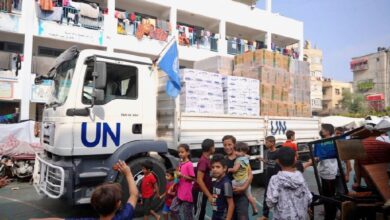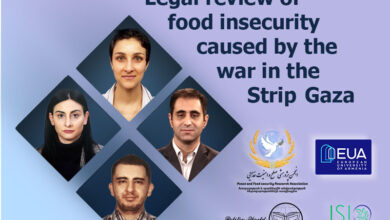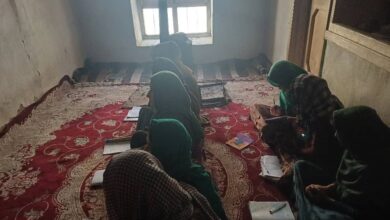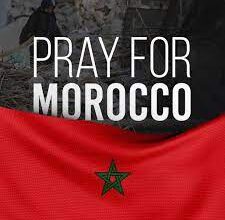Analyzing Food Security during the Russia-Ukraine War with Dr. Mehdi Zakerian( University professor and Director of International Studies Journal)
Russia's bloody war with Ukraine has affected food security globally. In a discussion with Dr. Mehdi Zakarian, we explored the challenges and complexities of today's problematic food security world

Hello Professor, we would like to commence the interview with your permission.
First question
Russia considers the Ukraine conflict a special operation, preferring not to use the term “war”. However, the question remains as to? whether this constitutes a war or a special operation.
Answer:
“Regardless of what Russia calls it, the events that occurred on the battlefield involved the use of force. Russia resorted to force first, followed by Ukraine. In international law, resorting to force is prohibited except in cases of legitimate defence as stated in Article 51 of the charter. Since there has been no attack on Russia, their resorting to force is considered a violation of international law. The term ‘special operations’ is a deceptive way to cover up Russian aggression. Even if it is called a preemptive operation, it still violates international law. In other words, this event is not a preemptive operation, legitimate defence or special operation; it is only a violation of international law and military aggression on the territory of another country.”
second question
“If a country takes food resources, hostage, deliberately sets fire to fields or destroys silos that are part of urban structures during a war or military conflict, in violation of the Geneva Protocols, would this not be considered a crime?”
Answer:
“Yes, because silos are among civilian targets. According to the laws of war and international humanitarian law, it is a violation to harm civilian places, civilians or military personnel who are not fighting. For example, ambulances or rescuers should not be targeted. Only military bases or barracks can be targeted. Attacking silos or industrial factories is a violation of international humanitarian law.”
Third question
“Regarding the opening of shipping lanes for food ships, should we engage in political bargaining or beg (as the UN does)? Shouldn’t the passage of food convoys be guaranteed?”
Answer:
During a war, one of the duties of countries is to engage in diplomacy through the United Nations. However, the other country may not accept responsibility and innocent people may be sacrificed. In these cases, any successful means or tool should be used. These efforts are part of the United Nations’ attempts to resolve conflicts. Russia’s failure to act immediately or their intentional actions are shortcomings and are considered immoral and inhumane
Fourth question
Is Russia’s behaviour as a global hostage taker in the field of fuel and food a violation? What does this mean for Ukraine’s food exports and itself? (For example, Russia has announced that if our sanctions are not lifted, there will be no license to export some goods, which is in fact a food hostage, or a pricing challenge will be created due to the lack of export or deadlocks.) An example of this issue is in Afghanistan, the Republic of Chad, and Sudan have become a disaster for aid organizations as food prices soar. In other words, when countries involved in war use food as political leverage or a weapon, isn’t this an illegal act? Can this be prosecuted?
Answer:
Therefore, any action that disrupts the transportation of food, and is done intentionally and with the will of the country engaged in war, is a violation of international humanitarian law. The principles of humanity, proportionality, separation, and discrimination must be respected, and any violation of these principles must be addressed and punished by the international community. It is important to prioritize the well-being of civilians during times of war and to ensure they have access to basic necessities like food. Failure to do so not only violates international law but also goes against basic human values.
A similar case is during the time of Mohammad Reza Shah (deceased) of Iran, who increased the price of oil in the 70s and caused protests by countries. Europe is facing an energy crisis and the price of oil is high, and no one could prosecute the king for an inhuman act. In other words, no one had the possibility to try the king because of the said act. In the field of food, it is also a violation of ethics, but when it comes to international and legal responsibility, it is another reason.
Nevertheless, such actions can have severe consequences for millions of people around the world, particularly those in developing countries who are already struggling with poverty, hunger and malnutrition. It is therefore important for governments, international organizations and other stakeholders to work together to address the root causes of the crisis and ensure that basic human rights such as access to food are respected and protected for all
In other words, if Russia tries to obstruct the transfer of food to another country, it violates the international system and disregards the rules of humanitarian rights, creating a kind of responsibility. For instance, there is no obligation for a country to transfer food to another if it wants to save its resources. Therefore, countries with surplus food cannot be held accountable for not helping poor countries such as Africa and Yemen. If such cases are brought to international courts, they cannot be prosecuted in courts like the International Criminal Court and the International Court of Justice. Moreover, Ukraine has two cases at the International Court of Justice related to genocide, which are not related to this issue. Only crimes against humanity can be brought under the jurisdiction of the International Criminal Court.
In general, any violation, in this case, can be considered a violation of international humanitarian law. Assuming responsibility for the food security violation, due to Russia’s presence in the Security Council, there is no possibility of prosecution. This issue can only be pursued through the General Assembly and the Security Council.
Does the intentional targeting of food-carrying ships include prosecution cases?
Yes, as mentioned, this matter falls under the jurisdiction of the Security Council, General Assembly and Human Rights Council. It can also be considered a war crime
Fifth question
Can we consider inhumane treatment regarding access to food as a crime against humanity? Is it possible to prosecute the offending country for this violation despite their political and military interests?
Answer:
Crime against humanity is defined in article one paragraph seven of the Constitution as a widespread or organized attack against a civilian population, and this can be defined in three factors: the occurrence of an attack, the civilian population, and the intentionality of the attack, and finally, the widespread or organized nature of an attack. considered a crime and therefore these conditions must be fulfilled. Regarding the war crime, it should be said that the crime committed in the Geneva Four Conventions has been mentioned and it should be seen how it is, or in other words, if both sides of the war are involved, then the issue in the field of food security has a special status.
Sixth question
“Can issues such as food insecurity in the world, which are considered to be consequences of war, be included in international conventions and statutes?”
َAnswer:
“It would be more accurate to say that the founding countries of the four Geneva Conventions did not consider the consequences of war and did not accept that the Court’s statute be written differently.”
Thank you for your time




